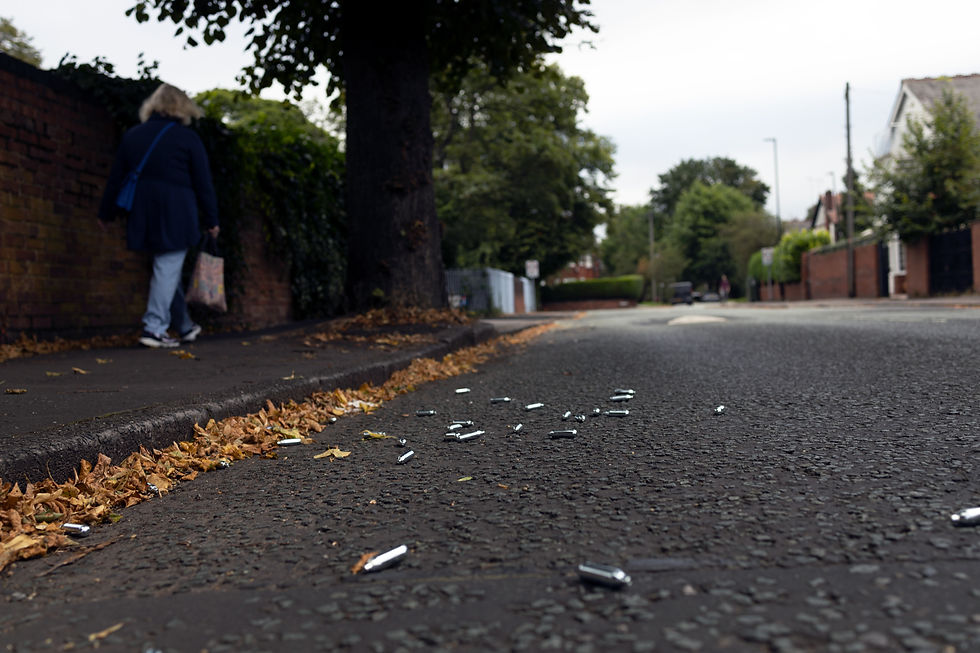Examining attitudes towards stop and search within Black communities
- Crest Advisory
- Jun 11, 2023
- 3 min read
Updated: Apr 29, 2025
Insights Case Study

The situation
The use of stop and search powers by the police is highly controversial. It is the focus of intense debate in the media and by politicians, often sparked by visceral accounts of stops which have been filmed and shared on social media. Indeed, the tactic has become a lens to view wider concerns of trust, confidence and fairness in policing. But there was little comprehensive research in the UK examining attitudes towards stop and search within Black communities. Where larger-scale, more robust academic studies exist, they tend to focus on broad research areas rather than on attitudes towards stop and search specifically. We were funded by the Hadley Trust to carry out this research.
Our work
We carried out the largest survey conducted of Black participants' views on crime, policing and stop and search and, to our knowledge, the first to be conducted on children’s views and experiences. Both surveys were nationally representative, and boosted to include 1,500 Black adults and 100 Black children – with 5,455 adult respondents online and 1,542 children aged ten to 18. We collected detailed demographic, socio-economic and lifestyle data within our survey, meaning we can look at the relationship between stop and search and trust and confidence and various other factors (for example: home/car ownership, social media use, education, employment, family background and whether respondents are parents).
The results
We published three separate reports detailing different aspects of the research: the views of adults, the views of children, and our recommendations based on these findings.
We found that while there is support across all ethnicities for the principle of stop and search, there are serious concerns among adults about its use in practice. 86% of adults think police should have the right to use stop and search for suspicion of weapons, 81% for class A drug possession. Support was broadly unchanged after we told people only 11% of searches led to arrest. However, 45% of all adults in our sample who had experienced stop and search found the experience traumatising, rising to 52% for Black adults. Nearly two thirds (61%) of Black adults felt embarrassed and humiliated, compared to 49% of White adults, and almost half (49%) of Black adults felt anxious returning to where they had been searched.
Our second report, ‘Forgotten Voices’, found an alarming lack of trust in police among Black children and teenagers, with only two-fifths saying that they feel safe around officers. Only 36% of Black children trust the police compared with 75% of White children, a figure lowest of any ethnic group, and lower than adults. Less than a quarter of Black children and teenagers questioned for the poll said they trusted police to stop and search them fairly.
Following these findings, we call for an independent national task force to be set up to bring about wholesale changes in the way police in England and Wales use stop-and-search powers.
Sky News covered all three reports, running a final package where they spoke to one of the young people who contributed to the research after attending a focus group. The Crest team has also engaged with stop and search police leads from forces across England and Wales, having presented the findings and discussed our recommendations with partners.

Report author, Patrick Olajide, being interviewed for Sky News
Findings from our first report were cited in the Baroness Casey Review examining the behaviours and standards of the Metropolitan Police Service. In a chapter about public consent, our research was quoted as an “indication of deficits in the Met’s securing of public approval”.
“This should be required reading for every cop, but especially those senior officers who set policy and standards such as the current National Police Chiefs’ Council lead and the College of Policing. Policing needs to be done with the community not to the community and that’s particularly the case for the non-White community, the Black community and the Afro-Caribbean community.”
- Neil Basu, the former Metropolitan Police Assistant Commissioner and author of the final report’s foreword



